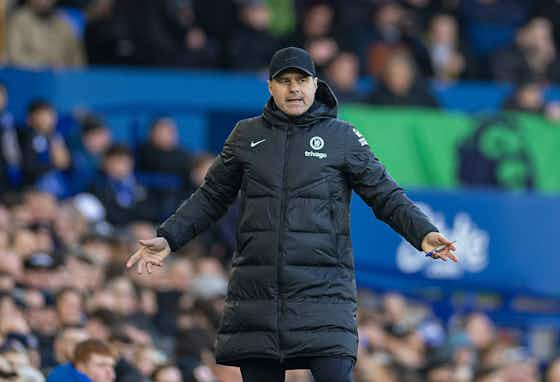EPL Index
·10 May 2024
Report: How the Europa League Could Impact Chelsea

In partnership with
Yahoo sportsEPL Index
·10 May 2024

Chelsea Football Club’s late-season surge in the Premier League has reignited hopes of European football at Stamford Bridge next year. The Athletic‘s analysis offers a comprehensive look at the implications of Chelsea securing a spot in the Europa League—a scenario filled with both promise and financial peril.
At the heart of Chelsea’s challenge are the stringent UEFA club licensing and financial sustainability regulations (FSR). With the club reporting a £90.1m pre-tax loss for the 2022-23 season, the wiggle room under these regulations is uncomfortably tight. UEFA’s FSR, which allows a loss of up to €80 million over two seasons, is more restrictive than the Premier League’s own profit and sustainability regulations, which permit a £105m loss over three years.
Kieran Maguire, a football finance expert cited by The Athletic, clarifies the tricky position Chelsea finds itself in: “Under UEFA rules, real estate profits are excluded from the calculation. You can do it under PSR, but you can’t do it in the EFL and you can’t do it under UEFA.”
UEFA’s decision to cap player amortisation at a maximum of five years introduces another layer of complexity. This rule change makes the club’s 2023 summer signings—like Moises Caicedo, whose £100m transfer fee now amortises at £20m annually under UEFA rules—significantly more expensive for FSR purposes than for PSR.

Photo: IMAGO
The Athletic notes that the five-year amortisation cap raised the yearly cost of Chelsea’s summer signings for FSR purposes from £59.4m to £80.9m. With such financial intricacies, Chelsea’s pursuit of European competition becomes a balancing act between sporting success and financial sustainability.
Despite these financial challenges, the rewards of European competition are undeniable. Winning the Europa League could bring in around £30m in prize money, not to mention additional match-day revenues and the potential for improved sponsorship deals. As The Athletic points out, “Lifting the trophy for a third time in 2024-25 would net Chelsea around £30m in prize money. That best-case scenario would also guarantee seven additional matches at Stamford Bridge, which brought in an average of £3.1m in match-day revenue in 2022-23.”
The club’s financial strategy must be as deft as its football tactics. With UEFA’s monitoring period running from January 1 to December 31, Chelsea has a bit more flexibility in aligning their finances with FSR requirements compared to the Premier League’s end-of-June deadline for PSR compliance. This scenario suggests that player sales, especially of academy graduates who represent pure profit on the books, will be crucial.
Swiss Ramble, another respected football finance analyst, concluded that Chelsea needs to generate a PSR profit of £36m for 2023-24 to remain within the Premier League’s three-year loss limit. This highlights the critical importance of the summer transfer window not just for squad planning but for financial equilibrium.
As Chelsea approaches the end of the Premier League season, the potential qualification for the Europa League represents more than just a return to European football—it’s a complex interplay of financial risk and reward. Mauricio Pochettino’s young squad has shown resilience, but as they push for a spot in Europe, the broader implications for the club’s financial health loom large. As The Athletic aptly puts it, “Pochettino and his team have no choice but to finish the Premier League season as strongly as possible, bring European football back to Stamford Bridge and let others worry about the rest.”
Chelsea’s drive for Europe is a testament to their ambition, but it also underscores the delicate balance between achieving sporting success and maintaining financial health in modern football.






























































